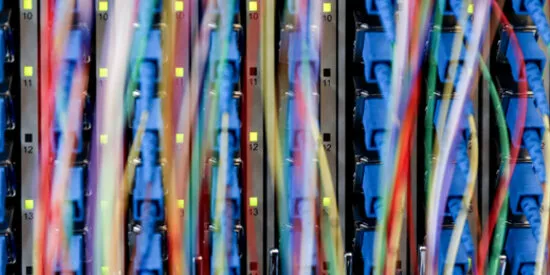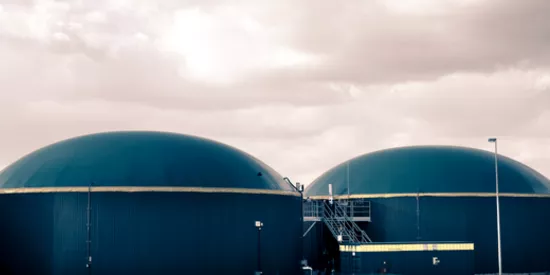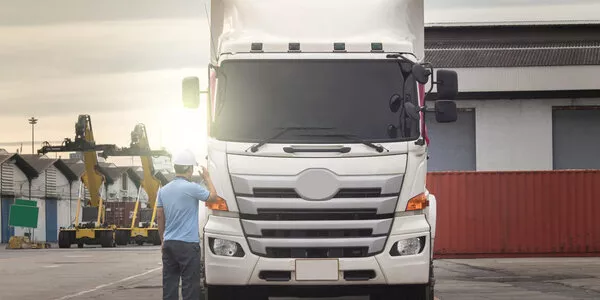
Morocco: tackling severe water scarcity with innovative solutions
Morocco has initiated an ambitious seawater desalination strategy aimed at producing over 1.7 billion cubic meters of fresh waterby 2030*. The Casablanca-Settat Desalination Project, set to be the largest plant of its kind in Africa, will play a crucial role in achieving this goal. Societe Generale participated in the structuring and the financing of this new facility, with a cover provided by Spain’s Export Credit Agency Cesce (Compañía Española de Seguros de Crédito a la Exportación) under its Green Investment Policy product.
With water supply decreasing by nearly 75% since the 1960s due to demographic pressure and climate change, Morocco is one of the most water-stressed countries in the world**. To address the situation, the government is implementing innovative solutions to secure its water supply. A legal framework has been established to promote unconventional water sources, including seawater desalination, and partnerships with key stakeholders have been formed to facilitate this transition. The ONEE (Office National de l’Électricité et de l’Eau Potable) leads water management efforts, overseeing projects that ensure water availability for the growing population and economy, including the Casablanca-Settat Desalination Project which is developed under a dedicated PPP (public-private partnership) structure.
A milestone in water management in North Africa
This project, located in Sidi Rahal, in the Greater Casablanca area, will have a production capacity of up to 300 million cubic meters of fresh water annually: 250 million cubic meters for drinking and up to 50 million cubic meters for regional agriculture, significantly contributing to local economic and social development. The produced drinking water will benefit 7.5 million people residing in Casablanca, Settat, Berrechid, Bir Jdid, and neighboring regions. The plant is scheduled for full completion in 2028. Not only does it promise to enhance the water supply for the Casablanca region, but it will also set a precedent for future infrastructure initiatives in North Africa. Indeed, it will be the largest facility of its kind in Africa and the world’s largest desalination plant powered entirely by renewable energy.
Advanced technology and renewable energy integration
The Casablanca-Settat Desalination Project will use the reverse osmosis technology, ensuring high efficiency in water purification. The process involves multiple stages of filtration and treatment, enabling the production of drinkable water that meets stringent Moroccan standards. Additionally, the desalination process will be entirely powered by renewable energy through a specific supply contract with a separate wind power project. This use of renewable energy is a requirement from ONEE and aligns with Morocco’s broader goals of decarbonising its energy supply and enhancing renewable energy capacity.
Funding ambitious desalination infrastructure
The Project’s sponsors, comprising Acciona (50%), Green of Africa (45%), and Afriquia Gaz (5%) recently announced the signing of the Project’s financing, representing a total investment of MAD 6.5 billion (~EUR 613 million). Acciona, a major Spanish group specialising in construction, renewable energy, infrastructure, and logistics, will be responsible for the construction, operation, and maintenance of the plant for a 27-year period, while Green of Africa is also one of the developers of the wind farm supplying green power to the Project.
Societe Generale took a leading structuring role in the financing, acting as Initial Mandated Lead Arranger, Senior Lender, Hedge Provider, Intercreditor Agent, Offshore Security and Offshore Account Bank in this transaction. The bank is participating as sole lender under the facility covered by Spanish Export Credit Agency Cesce. Through its involvement, Societe Generale facilitated the design and negotiation of a robust financial structure.
This project is a significant achievement for our consortium and demonstrates our ability to deliver large-scale infrastructure under a challenging PPP framework. Societe Generale’s support in structuring and arranging the financing, including the integration of ECA cover, has been instrumental in reaching financial close within challenging deadlines.
We are very proud to support Acciona, Green of Africa and Afriquia Gaz in this project which aims to address critical societal needs. As a bank, we intend to contribute to improving access to water, energy or other infrastructure.
* Facing Water Crisis, Morocco Targets 1.7 Billion m³ of Desalinated Water by 2030, https://www.moroccoworldnews.com/2024/12/167385/facing-water-crisis-morocco-targets-1-7-billion-m-sup3-of-desalinated-water-by-2030/
** Powering desalination with renewable energies in Morocco, https://res4africa.org/wp-content/uploads/2023/06/desalination_morocco_FINAL_DIGITAL.pdf




